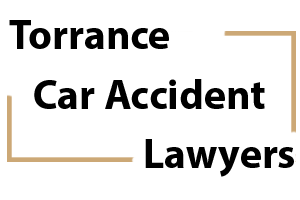When someone causes a car accident because of negligence, recklessness or malice, there is a good chance that they will be liable to cover expenses that were created by the accident. While many states have similar laws about personal injury claims, every state is different. It is important for car accident victims to enlist the help of lawyers who are licensed to protect victims in the state where their accident occured.
Typically, a car accident victim does not have to have a lawyer file a personal injury claim for them but many people recommend this. It can be a complicated process even for someone who is trained to do this but for many people, especially those who are injured or taking care of someone who is injured, it is overwhelming. Many people simply do not have the time or resources to be able to do this effectively in order to get compensation.
Many car accident lawyers offer free case evaluations with no obligations. Typically, personal injury lawyers who handle car accidents take cases on a contingency basis. This means that the lawyer (or lawyers) involved in a case agree to a percentage of a settlement or award amount if they prevail and the case is decided in the car accident victim’s favor. If they do not win, the car accident victim does not have to pay for any of the lawyers’ fees.
Contributory Negligence vs Comparative Fault
In jurisdictions that employ the Pure Contributory Negligence Rule, a defendant (or defendants) in a car accident claim has to be 100% guilty for the plaintiff (victim) to be able to recover for damages the defendant caused. If it is found that the plaintiff contributed to causing even 1% of an accident, they are barred from seeking compensation. Contributory negligence may be overcome in some situations but this is not as common. If a car accident victim can prove that a defendant’s malicious and/or reckless behavior caused their accident, they may be able to seek recovery for their injuries even though the accident was partially their fault.
Not many jurisdictions still employ the Rule of Pure Contributory Negligence that many people feel is an outdated and unfair way of dealing with personal injury claims. The jurisdictions where the Pure Contributory Negligence Rule is still in effect are Alabama, District of Columbia, Maryland, North Carolina, and Virginia.
The Pure Comparative Fault Rule allows a damaged party to recover even if it is 99% at fault. The thirteen states that recognize this rule are Alaska, Arizona, California, Florida, Kentucky, Louisiana, Mississippi, Missouri, New Mexico, New York, Rhode Island, South Dakota, and Washington.
The Modified Comparative Fault Rule has competing schools of thought in the 33 states that recognize it. The 50% Bar Rule means that a damaged party cannot recover if it is 50% or more at fault. States that adhere to this rule include Arkansas, Colorado, Georgia, Idaho, Kansas, Maine, Nebraska, North Dakota, South Carolina, Tennessee, Utah, and West Virginia. Under the 51% Bar Rule, a damaged party cannot recover if it is 51% or more at fault. The states that follow this rule include Connecticut, Delaware, Hawaii, Indiana, Iowa, Massachusetts, Michigan, Minnesota, Montana, Nevada, New Hampshire, New Jersey, Ohio, Oklahoma, Oregon, Pennsylvania, Texas, Vermont, Wisconsin, and Wyoming.
If you or someone you love has been injured in a car accident, regardless of whether or not the person who caused it is 100% or 1% at fault, it may be in your best interest to discuss your situation with reputable car accident lawyers.
